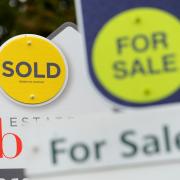Nearly a fifth (19%) of drivers say their local authority has either scrapped parking payment machines or is consulting on doing so, a survey suggests.
The RAC said its poll of 1,900 UK motorists indicates that millions of people are or will soon be forced to use their phones to pay for parking.
There are concerns that requiring drivers to use a mobile app or call a phone number is particularly difficult for some elderly or vulnerable people, putting them at risk of being fined for non-payment.
Almost three out of five (59%) respondents to the survey said they felt angry about the idea of parking machines being removed, believing they should be able to pay however they want.
The figure rose to 73% for those aged 65 and older.
A fifth (20%) of drivers said they felt discriminated against as they cannot use mobile apps to pay for parking.
The Local Government Association (LGA), which represents councils, said there are “advantages in going digital” and work is being done to “make the process as simple as possible”.
Communities Secretary Michael Gove wrote to councils in April expressing concern about drivers being “digitally excluded” through a lack of alternative payment methods.
There are complaints among drivers about the number of different parking apps used by councils, such as RingGo, PayByPhone, JustPark, ParkMobile and ParkMe.
To use each one, drivers must download them and enter their details. Some charge an additional fee.
Some 11% of people surveyed reported that a proportion or all parking payment machines have been removed near where they live, with an additional 8% saying their local authority is consulting on doing so.
Drivers in London were most likely to say either of the scenarios applied to them (44%) followed by those in the east of England (23%) and the East Midlands (22%).
Many councils and private parking operators are getting rid of older machines that process card payments by 3G mobile signals, which telecoms operators are switching off.
This has left them with the choice of buying more modern machines or switching to a phone-based payment system, which does not require physical infrastructure in car parks beyond signs.
RAC spokesman Rod Dennis said: “While for many people a switch to purely mobile phone-based parking payment poses no problems, our research clearly shows that for others it spells bad news.
“In fact, a majority of drivers across all age groups think getting rid of parking payment machines is a bad idea.
“Of course, cash-strapped councils will find it difficult to justify spending large sums of public money on upgrading parking machines, which explains why some are bringing in third-party parking app providers instead.
“But it’s vital councils, and indeed private parking operators, carefully assess the impact of going down this route before taking machines away.
“Our research shows that – by removing some methods of paying for parking – they are undoubtedly making life harder for some drivers and possibly contributing to social isolation.
“The move could also lead to lower parking revenue as a result of drivers being put off from parking in the first place, something that’s surely not in any local authority’s interests.”
The RAC surveyed 1,900 UK drivers who are part of its driver opinion panel. They figures were weighted to be nationally representative.
LGA transport spokesman Darren Rodwell said: “The removal of the 3G network is posing considerable challenges to some councils who operate physical parking meters.
“This change, along with other customer trends, has led to councils digitising parts of their parking services.
“This includes moving to cashless payments and in certain cases removing parking meters when other more beneficial, efficient and secure ways can be taken to make payments.
“In line with other public and private services, there are advantages in going digital, such as drivers getting a text warning that time will expire, or being able to extend their stay without returning to the car park, as well as reducing the risks of theft from payment machines.
“Councils are working with Government and parking operators to streamline the number of apps needed to make payments, to make the process as simple as possible for residents.”


























